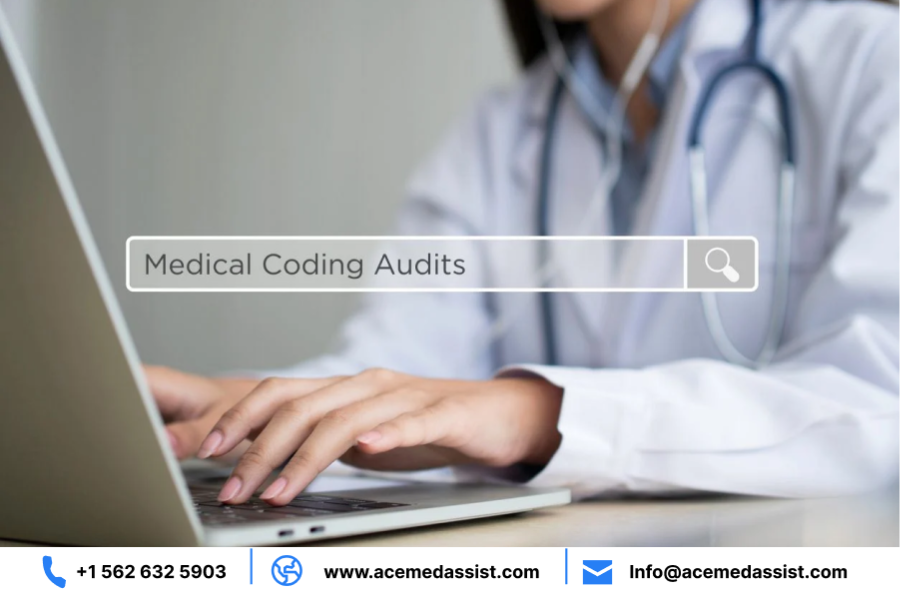Providing great patient care and maintaining compliance with intricate rules are two of the many challenges that modern medical practices must overcome. You have committed your life to helping people as a healthcare practitioner, but there is another aspect of your work that needs just as much attention: payor medical audit evaluations.
Payors, such as insurance companies or government health programs, conduct thorough audits of physician paperwork and coding to guarantee correct billing, adherence to rules, and fraud prevention. They confirm that the services billed were rendered and medically essential by looking over the documentation, and following coding norms keeps everything transparent and consistent. Additionally, audits prevent fraudulent activities like unbundling and upcoding.
A lot of providers are unsure about how to safeguard their procedures during audits. Common questions about medical practice audits are covered in this article, along with the function of a healthcare audit lawyer, successful healthcare audit defence tactics, and the value of speaking with experts in the field.
Why Are They Auditing My Practice?

Anxiety-inducing medical practice audits might leave you wondering why you are being scrutinized. Audits can be caused by many things, so it’s important to know why your business is being scrutinized. Certain audits are conducted at random. These are standard audits conducted by government or payer entities. Consider them as impromptu audits to make sure healthcare professionals follow the law. Payers frequently carry out targeted investigations in addition to the usual random audits.
These studies concentrate on practices that exhibit unusual billing patterns or behaviours in comparison to their contemporaries. If your clinic consistently invoices with certain modifiers, makes a sizable profit, or uses irregular billing procedures, you may draw notice.
Comprehending the rationale for an audit is beneficial, if not always evident. You will, however, be more equipped to handle the audit if you are aware of the billing trends and possible triggers for your firm. Occasionally, a proactive audit of medical records conducted by independent coding specialists might identify areas that require improvement, enabling you to confidently go through the audit process.
Ways to Get Ready for a Medical Audit

Your best defence against medical practice audits is preparedness. Being proactive might save you a great deal of stress when it comes to external audits. You may strengthen your practice’s audit preparation by taking these vital steps:
Perform internal audits:
Conducting an audit on your terms before a payer’s demand is the greatest approach to getting ready for a future audit. Analyze your practice first. Do patient records include thorough documentation? Are the policies of your providers current? An effective internal audit may point up problems in your practice that should be fixed before an external audit.
Seek outside expertise:
Don’t be afraid to use coding specialists and accredited billing businesses to thoroughly examine your billing processes and paperwork. From the standpoint of payer audits, they provide insightful information that can assist you in finding and resolving disparities.
Staff supervision and training:
Your first line of defence is your crew. Make sure they receive proper training and oversight. Revise written rules about privacy, documentation, communication, and patient files. Ensure that staff members are aware of these guidelines and their responsibilities within the company.
Assessing electronic health records (eHRs):

Evaluate your EMR’s advantages and disadvantages. Electronic records may occasionally fail to collect the information required to pass auditor checks. The requirements of the audit should be met by your EMR system.
Accredited billing businesses:
Make sure the billing company’s staff members are qualified and well-trained if you’re thinking about hiring them. Having good billing procedures is essential to getting good audit outcomes.
Continue to keep accurate records:
Ensuring complete and accurate patient records is essential, and this can be achieved through comprehensive medical auditing services. Accurate documentation promotes compliance and facilitates an easy audit procedure. Ensure that all services, treatments, and procedures are accurately documented.
Recall that proactive and defensive auditing is the goal of audit defence. Creating a strong compliance program is the best defence against medical audit uncertainty. Performing internal audits, keeping accurate records, and enlisting outside assistance will prepare you to take on healthcare audits head-on.
How Should I Respond to an Audit of My Practice?

It’s important to maintain composure and implement a defined plan of action if an audit notification is received. Here’s what to do, step-by-step, if an audit is conducted of your medical practice:
Examine and mark the deadline on your calendar:
Read the audit notification carefully, making note of the due date for your answer. Whether it’s a post-audit overpayment demand, a pre-payment review, or a document demand, knowing the timetable is crucial.
Determine who the auditor is:
Identify the audit’s origin. Is it a private insurance business, Medicare, or a private contractor employed by a government agency? Selecting how and when to answer depends critically on the identity of the assessor.
Understand your payer policies:
Learn as much as you can about the payer’s policies, particularly those about appeals. Having a thorough understanding of these might help you formulate your response.
Speak with legal counsel:
Consult a lawyer with experience in healthcare audit defence for legal advice. They can help you navigate the procedure and make sure you don’t unintentionally hurt your case.
Keep things private:
Don’t discuss the audit with your personnel or any other third party until you’ve spoken with your attorney and obtained advice. Complications may arise from loose lips.
Avoid overcommunicating with auditors: Although it may be tempting to provide auditors with in-depth explanations, avoid the desire. They’re looking for overpayments, so whatever you say might be taken the wrong way. Request written questions from the auditor, allowing you to evaluate them carefully with your counsel.
Although managing a medical audit can be challenging, you can successfully safeguard your practice’s interests if you have a clear plan in place and legal representation.
Medical Audit Types

There are many different types of medical audits provided by medical billing companies in US, and each has its own goals and objectives. You can traverse the audit environment more skillfully if you are aware of these types:
Government audits
To verify adherence to federal requirements, government organizations such as Medicare and Medicaid carry out audits. The purpose of these audits is to find fraud, misuse, and billing mistakes in medical claims.
Audits by private payers
To examine billing procedures, audits are also carried out by private insurance firms. Preventing overpayments and guaranteeing claim accuracy are their two main objectives. Audits could be started by them in response to particular issues or billing trends.
Recovery audits
Audits aimed at recovering overpayments to healthcare providers are known as recovery audits. Their goal is to locate and retrieve money that wasn’t supposed to be spent in the first place.
Pre-payment reviews
Some audits take place before the receipt of payment. Auditors evaluate the veracity of claims in pre-payment assessments before insurers authorise their payment.
Demands for overpayment made after an audit
These requests aim to recoup money that was paid to providers in error after the audit has concluded.
Speak with Ace Med Assist, an Expert Audit Defense Lawyer!

Audits are inevitable, so being ready for them is your greatest line of protection. We’ve gone over the necessary actions to take to overcome these obstacles, but occasionally you need more than just information; you need a group of professionals to support you.
Ace Med Assist, a reputable brand for streamlining the medical industry’s operations, is available to assist you with audit appeals and defence. Medicare appeals, OIG regulatory compliance, audit extrapolation defence, CMS medical necessity, and clinical documentation assessments are among the areas of expertise for our seasoned medical audit specialists. You may rely on our team of skilled statisticians, economists, programmers, and auditors to provide an objective, fact-based defence.
A customized strategy for protection and reaction is needed for every kind of audit. For these audits to be properly completed, it is frequently necessary to confer with medical audit specialists.









